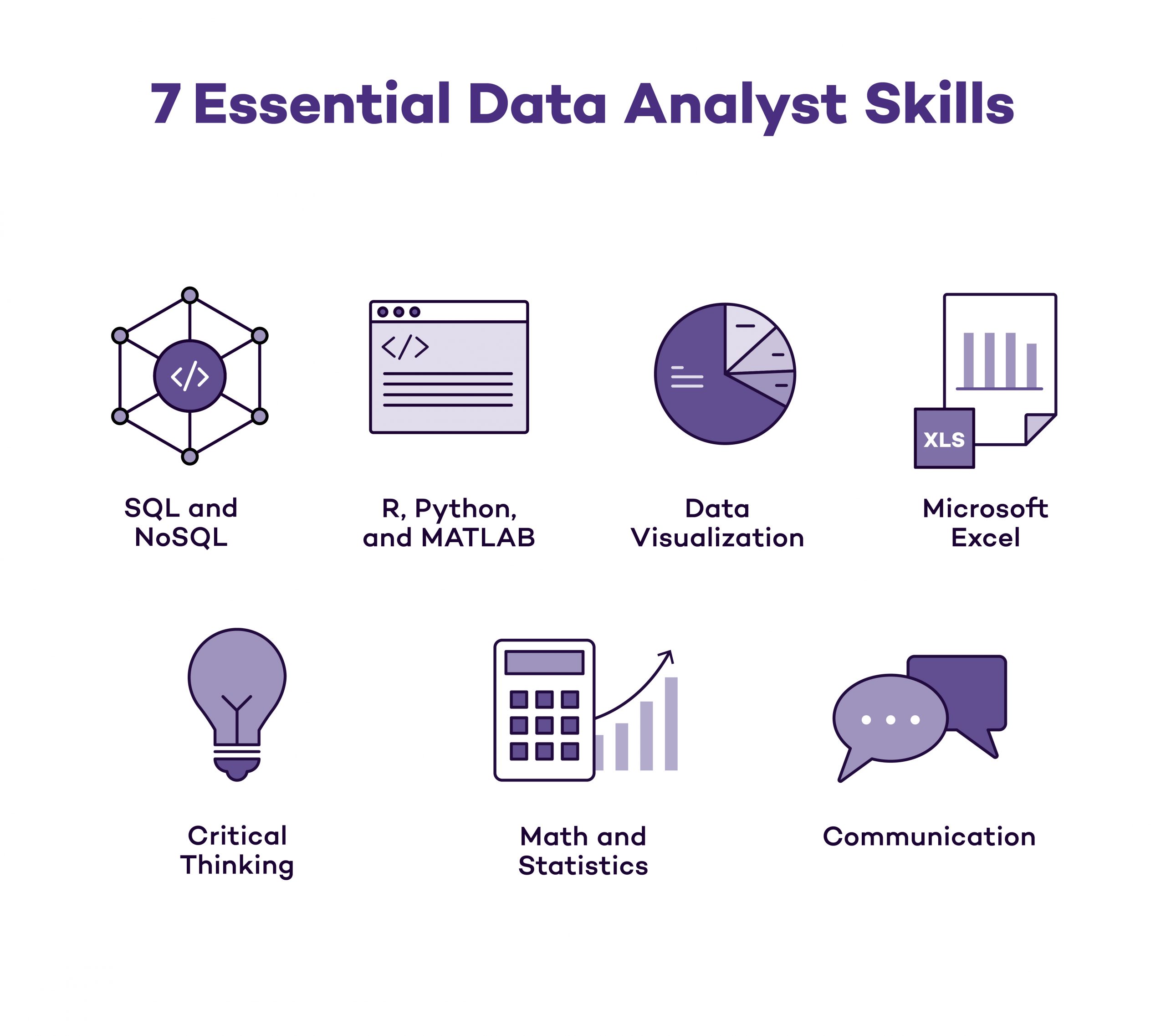Career Counselling and Guidance
Job as Data Analyst: Unlocking the Power of Data
The Mintly Team
November 23, 2023
In today’s data-driven world, the demand for skilled professionals who can make sense of vast amounts of information is on the rise. One such role that has gained immense popularity is that of a Data Analyst. This blog post explores the exciting and rewarding career path of a Data Analyst, shedding light on the skills required, job responsibilities, and the future prospects in this field.
What is a Data Analyst?
A data analyst is a professional who collects, organizes, and analyzes large sets of data to extract valuable insights and inform strategic decision-making. They play a crucial role in helping organizations make data-driven decisions by examining complex data sets and identifying patterns, trends, and correlations.
Data analysts are skilled in using various tools and techniques to manipulate and analyze data, including statistical analysis, data mining, and data visualization. They are proficient in programming languages such as Python, R, or SQL, which enable them to extract, clean, and transform data into a usable format.
One of the primary responsibilities of a data analyst is to develop and maintain databases, ensuring data integrity and accuracy. They work closely with stakeholders from different departments, understanding their data needs and translating them into actionable insights. By designing and implementing data collection systems and strategies, data analysts can help organizations optimize their data collection processes.
Once the data is collected, the data analyst performs exploratory data analysis to identify trends and patterns. They use statistical techniques to uncover relationships between variables and develop models to predict future outcomes. By visualizing the data through charts, graphs, and dashboards, they effectively communicate their findings to non-technical stakeholders.
Data analysts also play a critical role in identifying areas for improvement within an organization. By conducting thorough analysis of key performance indicators (KPIs), they can identify inefficiencies or areas of opportunity for growth. They may also be involved in conducting market research, competitor analysis, or customer segmentation to support business strategies.
Skills Required to Excel as a Data Analyst
To excel in the job as data analyst, there are several key skills that are essential for success in this field. These skills not only involve technical expertise but also encompass critical thinking, communication, and problem-solving abilities. Here are some of the skills required to excel as a data analyst:
Analytical Skills
Data analysts need strong analytical skills to interpret complex data sets and extract meaningful insights. They should be able to identify patterns, trends, and correlations within the data to make informed decisions.
Statistical Knowledge
A solid understanding of statistics is crucial for data analysts. They should be familiar with statistical concepts such as probability, hypothesis testing, regression analysis, and data sampling techniques.
Programming Skills
Proficiency in programming languages like Python or R is vital for data analysts. These languages are commonly used for data manipulation, analysis, and visualization. Being able to write efficient code and automate data processes is highly valuable.
Data Visualization
Data analysts should be skilled in presenting data in a visually appealing and informative way. They should be familiar with tools like Tableau, Power BI, or Python libraries such as Matplotlib and Seaborn to create meaningful visualizations. Leading institutes such as OdinSchool offers Power BI course that can help you in scaling your knowledge.
Domain Knowledge
Having domain knowledge in a specific industry or field can be advantageous for data analysts. Understanding the context of the data being analyzed helps in generating relevant insights and making informed decisions.
Problem-solving Skills
Data analysts need to be proficient problem solvers. They should be able to identify business problems, define research questions, develop appropriate analytical approaches, and provide actionable recommendations based on their findings.
Communication Skills
Effective communication is essential for data analysts to convey their findings and insights to both technical and non-technical stakeholders. They should be able to present complex information in a clear and concise manner.
Attention to Detail
Data analysts must pay close attention to detail when working with large datasets. A small error or oversight can lead to inaccurate results or flawed conclusions.
Curiosity and Continuous Learning
The field of data analysis is constantly evolving, so a curious mindset and a willingness to learn new techniques and tools are crucial for staying up-to-date with the latest trends and advancements.
Ethics and Confidentiality
Data analysts often handle sensitive and confidential information. It is important for them to adhere to ethical guidelines, maintain data privacy, and ensure the security of the data they work with.
Responsibilities of a Data Analyst
A data analyst plays a crucial role in today’s data-driven world. As a data analyst, your job is to gather, analyze, and interpret large sets of data to provide valuable insights and support decision-making processes. The responsibilities of a data analyst can vary depending on the industry and organization. There are some key tasks that are commonly associated with this role.
One of the primary responsibilities of a data analyst is to collect and clean data. This involves identifying relevant data sources, extracting the necessary information, and ensuring the data is accurate and consistent. Data cleaning is essential to remove any errors or inconsistencies that may affect the quality of the analysis.
Once the data is collected and cleaned, the next responsibility is to analyze it. Data analysts use various statistical techniques and tools to uncover patterns, trends, and correlations within the data. This analysis helps in identifying insights and answering specific business questions.
Another important responsibility is to create visualizations and Power BI Embedded reporting based on the analysis.. Data analysts often use tools like Excel, Tableau, or Power BI to present complex data in a clear and understandable format. Visualizations help stakeholders easily grasp the key findings and make informed decisions based on the insights provided.
Process Improvement and Quality Checks
Data analysts also play a crucial role in identifying opportunities for process improvement or optimization. By analyzing data, they can identify bottlenecks, inefficiencies, or areas where resources can be better allocated. This helps organizations make data-driven decisions to improve operational efficiency and enhance overall performance.
Furthermore, data analysts are responsible for monitoring data quality and ensuring data integrity. They need to be aware of any changes in data sources or collection methods that may impact the analysis. Regularly monitoring and validating data helps maintain the accuracy and reliability of the insights generated.
In addition to these core responsibilities, a data analyst should possess strong communication skills. They need to effectively communicate complex findings to non-technical stakeholders, such as managers or executives, in a clear and concise manner.
Career Opportunities and Future Prospects
The demand for skilled Data Analysts continues to grow across industries. Organizations recognize the value of data-driven decision-making and seek professionals who can extract meaningful insights from data. As a result, there are numerous career opportunities available to Data Analysts, including:
- Business Analytics: Data Analysts can work in business analytics teams, helping organizations optimize processes, identify market trends, and improve customer experiences.
- Market Research: Data Analysts play a vital role in market research by analyzing consumer behavior, conducting surveys, and providing actionable insights to guide marketing strategies.
- Finance and Banking: Financial institutions employ Data Analysts to analyze market trends, assess risk, and develop predictive models for investment decisions.
- Healthcare: In the healthcare industry, Data Analysts analyze patient data to improve treatment outcomes, optimize resource allocation, and identify patterns for disease prevention.
- Consulting: Many consulting firms hire Data Analysts to provide data-driven insights to clients across various industries.
- Manufacturing: In many traditional Industries such as Jewelry, Precious Metals or Mining, there is always need for Data Analyst. Many Jewellery Jobs and Mining Jobs are posted for hiring Data Analysts with good Advance Excel skillsets. Data Analysts Jobs are the current high paying jobs in Manufacturing Sector.
Conclusion
In conclusion, pursuing a Job as Data Analyst offers tremendous opportunities for individuals who possess a passion for data analysis, problem-solving, and critical thinking. With the ever-increasing volume of data being generated globally, the demand for skilled professionals who can unlock its potential will only continue to rise.
By acquiring the necessary skills and staying up-to-date with emerging technologies, aspiring Data Analysts can position themselves at the forefront of this exciting field. So if you have an affinity for numbers, enjoy working with data, and love unraveling insights that drive business growth, a job as Data Analyst might just be the perfect fit for you.
All Tags
